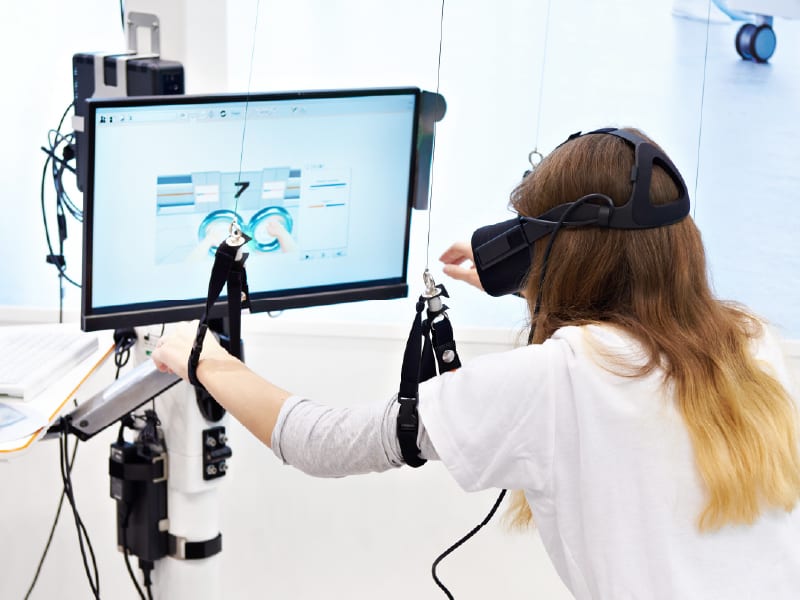Overview:
Virtual Reality (VR) is continuously being used to reestablish injury patients, offering new decisions for recovery. VR gives an environment that grants patients to participate in various supportive exercises according to their specific necessities. Nevertheless, there are a couple of critical examinations that ensure the practicality and prosperity of including VR in the stroke setting.

Patient Ability: Not all stroke patients might be reasonable for rehabilitative VR. Factors like stroke sincerity, mental deficiencies, and veritable objectives ought to be assessed to conclude whether VR is a reasonable choice.
Pushing Treatment: VR activities should be changed to meet the specific necessities of stroke patients. Mind control unites rehearses that target unequivocal made advancements, mental capacities, and areas of the cerebrum affected by distress. Related VR encounters can also sincerely additionally foster the recovery association.
Progress reliably: Beginning with essential errands, it is fundamental to make VR practices one small step at a time, expanding in a tough spot. This approach helps develop patient sureness and ensures that the treatment they search for isn't overwhelming. Slow improvement is moreover helpful in really looking at a patient's headway after some time.
Prosperity and Care: Security is a critical idea when including VR for stroke recuperation. Patients could have decreased harmony and viable smoothness, and they ought to be solidly managed during the VR gatherings. Moreover, the VR environment should be planned to restrict the risk of falling or hurting others.
Mechanical Resources: Induction into VR development is indispensable. This ensures that the device is not difficult to use for stroke patients and has adequate assistance for its foundation and use. Openness also integrates the possibility of the expense and availability of VR contraptions and programming.
Expert Connection: The control of experts in VR-based recovery is fundamental. Experts ought to arrange the patient through VR works out, give examination, and change the program dependent upon the situation. Their thinking guarantees that treatment is persuading and strong for the patient's general recovery goals.
Patient obligation: Partnering with and mixing patients is key to useful recovery. VR can create natural and striking encounters that make treatment more charming and urge patients to share, as a matter of fact. In any case, it is vital to screen patient alliance and change the VR program, if focal.
The utilization of VR in the recovery of
stroke patients offers promising, opportunities for recuperation. By the by, assessments like patient reasonableness, treatment improvement, security, transparency, expert responsibility, and patient obligation should be carefully tended to by focusing on top of these variables. VR can be a huge device in the excursion of recuperation from stroke.